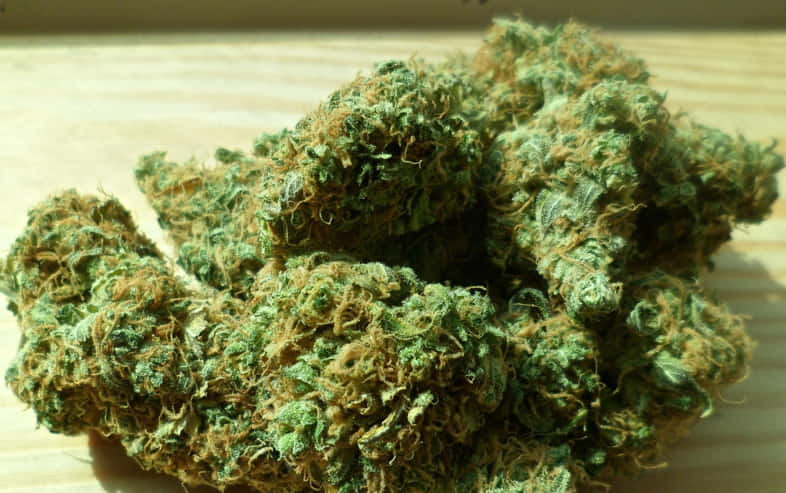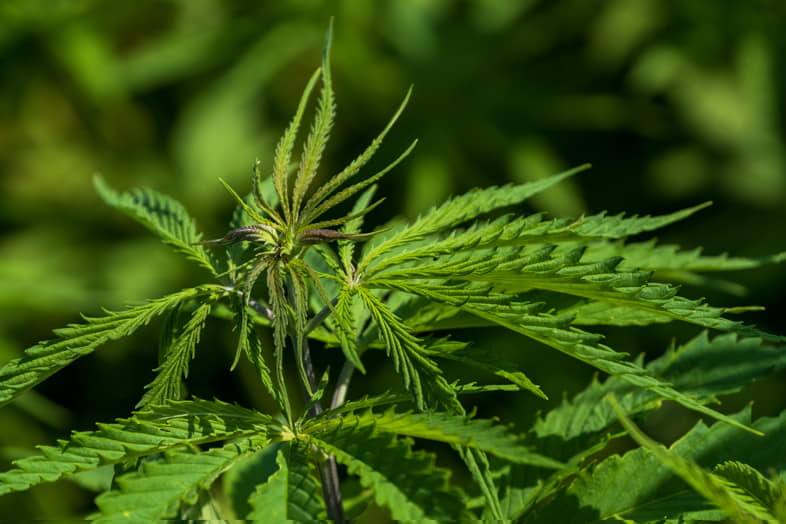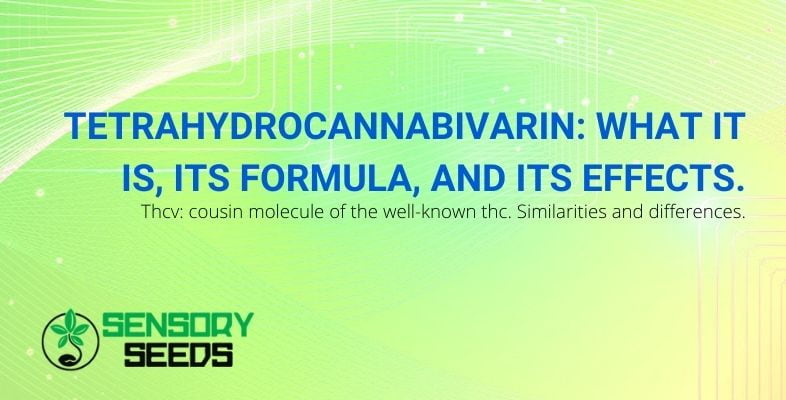Modified on: 20/09/2022
THCV: cousin molecule of the well-known THC. Similarities and differences
The recent success of cannabis products in countries where their production and sale are permitted by law brings important news. The latest? The discovery of a new active ingredient in marijuana, tetrahydrocannabivarin, is currently at the centre of various debates and scientific research. Marijuana, despite the social stigma it still inspires in most people, seems to be making every effort to get the consideration it deserves finally.
To this end, it provides us with a new cannabinoid with various properties. If you want to know more about THCV, read on!
Read also: Decarboxylating cannabis: what it means and why it’s essential
What is tetrahydrocannabivarin?
Shortened as THCV, this molecule is one of the many cannabinoids contained in cannabis. The similarity of the name with THC is due to its molecular structure. The two are, in fact, surprisingly similar, although the mechanisms by which they interact with the body are not so identical. Let’s try to understand how. When we consume marijuana, the cannabinoids activate specific receptors in our endocannabinoid system. These receptors, known as CB1 and CB2, are then stimulated by interaction with THC. However, in the case of THCV, we can say that its interaction with the receptors depends on the quantities taken. At low doses, tetrahydrocannabivarin appears to act as an antagonist to CB1 and CB2, attenuating the well-known psychoactive effects of THC. Put simply. It inhibits the high commonly caused by tetrahydrocannabinol. In this case, its effects could be compared to those of CBD. The situation changes, however, if THCV is taken in high doses. Under these conditions, it can manifest its psychotropic properties, generating a general state of euphoria and acting as a CB1 activator. In a way, we could say that this molecule encompasses the main characteristics of the two active cannabis principles most studied so far: THC and CBD, choosing which of the two to resemble according to the dose administered. Let us now see if and what the differences are between tetrahydrocannabinol and tetrahydrocannabivarin. 

THC and THCV: what are the differences?
As the proximity of their names suggests, these two molecules have much in common chemically. Their molecules are highly similar in structure. Despite this, THC and THCV have several differences in how they interact with our bodies. Let’s see which ones. As we were saying, for example, at high doses, THCV is capable of inducing the effects of the so-called high. However, the feeling of euphoria and lightness seems to be slightly different from that caused by THC. The psychotropic effect of tetrahydrocannabivarin is manifested in the form of an intense and stimulating high, but one that is more lucid and ephemeral than that induced by THC. It also appears that THCV, unlike THC, inhibits appetite. This makes it potentially very useful in managing weight regulation. So, can I use it to have beneficial effects? Which ones?
Read also: Litmus paper and cannabis: how to use it to measure soil pH
THCV: Effects and benefits
Speaking of cannabis, it is certainly not the first time we have evaluated its potential therapeutic properties. And in this case, too, the news seems to be very good. THCV seems to be no exception. As you may have read above, recent research attributes appetite-inhibiting properties to this molecule. But that’s not all. It also appears to be anti-inflammatory, anti-convulsive and slows down the processes underlying neurodegenerative diseases. But how can THCV influence these processes? In contrast to THC, which induces a feeling of hunger, THCV could in future be used to promote weight loss through its appetite-inhibiting effect. This is a direct consequence of its antagonistic action on the CB1 receptor, which regulates appetite, among other things. This makes THCV a potential ally in the treatment of certain eating disorders. Recent research also suggests that THCV may increase energy expenditure in mice, leading to weight loss. The potentially valuable properties of THCV do not end there. It appears to have an anticonvulsant effect. Therefore, it is thought to be particularly effective in treating disorders such as epilepsy. An initial study published in the journal Epilepsia observed the development of the brain of a rat suffering from a particular form of epilepsy following the administration of THCV, concluding that the molecule could have practical applications in treating states of hyperexcitation. Further studies in mice have shown that THCV administration also produced noteworthy effects on the swelling of the hind legs, reducing pain and inflammation. Finally, the effect of THCV in slowing down neurodegenerative processes should be mentioned. For example, researchers have observed that the use of THCV in animals suffering from Parkinson’s disease slowed down the progression of the disease and improved symptoms. This is again attributable to the molecule’s ability to activate CB2 receptors while simultaneously blocking CB1. It also has a marked antioxidant effect. These are not insignificant discoveries, although studies on human subjects to determine the tolerability and safety of THCV are still in progress. 

So what are the effects of THCV?
The latest discovery in the large family of cannabinoids, tetrahydrocannabivarin, appears to have common aspects and effects with THC and CBD. However, its interaction with the body is determined by the dose taken. At low doses, it appears to share with CBD the ability to inhibit the CB1 and CB2 receptors, thus counteracting the psychotropic effects of THC.
At higher doses, however, THCV appears to emphasise the drugging effects of THC further while offering a more lucid and intense high, albeit with less long-lasting effects. According to the latest studies currently carried out on rats, it appears to have significant therapeutic potential in treating various problems, such as eating disorders, epilepsy and neurodegenerative diseases, such as Parkinson’s disease.
Although ongoing studies have not yet determined safety and tolerability levels in humans, the cannabinoid family once again offers essential research insights.
If you are a marijuana enthusiast and love collecting marijuana seeds, we invite you to visit our Sensoryseeds.com online store. Choose from our wide range of quality weed seeds to complete your collection: feminized seeds, auto flower seeds, fast growing weed seeds, there is something for every taste!
We look forward to seeing you on Sensoryseeds!









